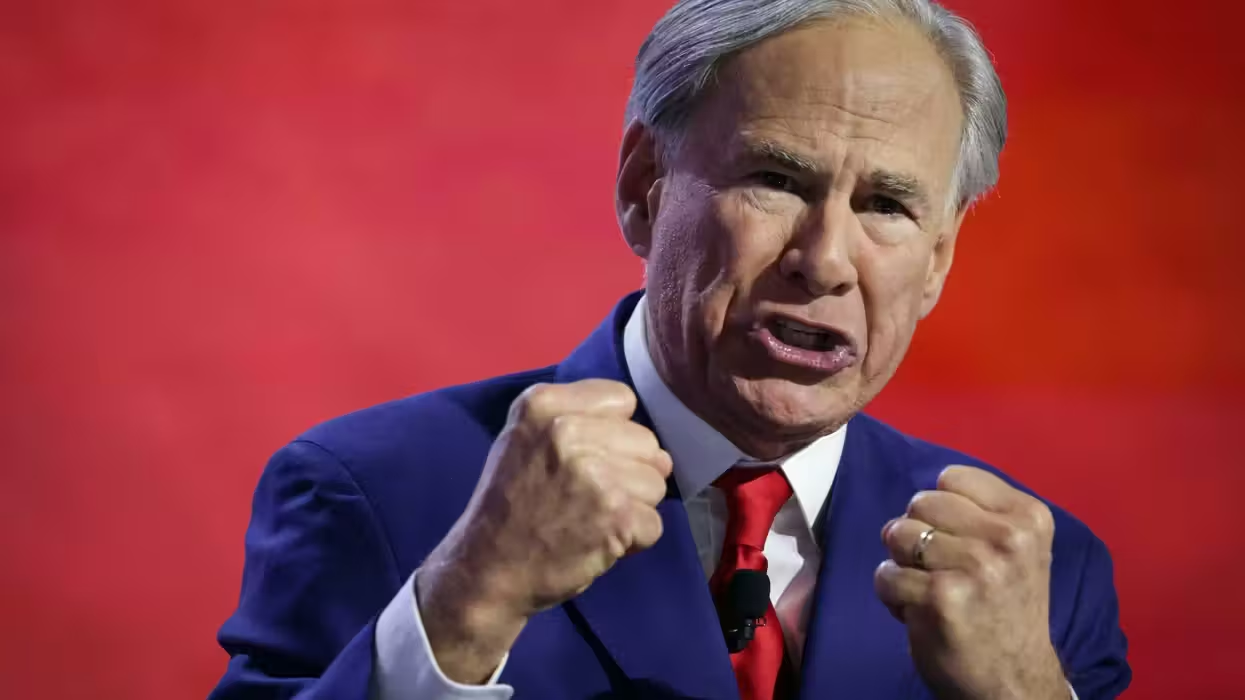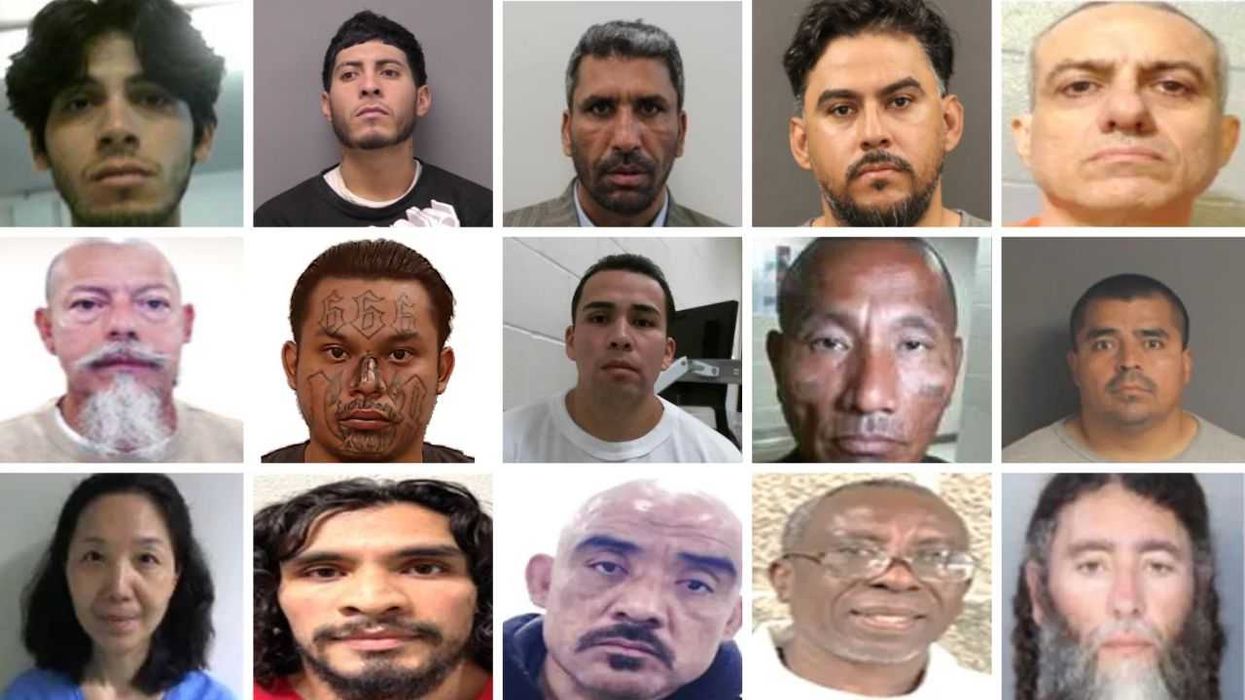
© 2025 Blaze Media LLC. All rights reserved.
"All of Egypt must move, at one time."
CAIRO (AP) -- Egyptian activists on Wednesday used social networking sites to call for a fresh wave of demonstrations, a day after they staged the biggest protests in years in Egypt to demand the end of President Hosni Mubarak's nearly 30-year rule.
However, the Interior Ministry warned that police would not tolerate any gatherings, marches or protests, suggesting that security forces would immediately crackdown at the first sign of protesters gathering.
Across the Egyptian capital on Wednesday, thousands of riot police were deployed in anticipation of fresh anti-government, Tunisia-inspired protests. A day earlier, tens of thousands demonstrated in Cairo and several other Egyptian cities to call for Mubarak's ouster and a solution to rampant poverty, rising prices and high unemployment.
Security officials, meanwhile, said up to 200 protesters were detained early Wednesday during clashes between police and protesters in Cairo and elsewhere in this Arab nation of some 80 million people.
More were likely to be detained as authorities review police video tapes of the protests, the officials said, speaking on condition of anonymity because they were not authorized to speak to the media.
Two protesters and a policeman were killed in Tuesday's protests and some 250 were wounded, including 85 policemen, when riot police used tear gas and batons to disperse protesters shortly after midnight. Medical officials said a third protester died Wednesday from injuries sustained a day earlier.
In the southern city of Assiut, eyewitnesses said riot police set upon some 100 activists staging an anti-government protest Wednesday, beating them up with batons and arresting nearly half of them.
Activists had organized Tuesday's protests, dubbed "day of revolution against torture, poverty, corruption and unemployment," on the social networking site Facebook, and demonstrators spread word of where to gather on Twitter.
"All of Egypt must move, at one time," the Facebook group organizing the demonstrations said in a posting Wednesday in which it listed a number of spots in Cairo and around the country where demonstrators should gather.
Thousands of policemen in riot gear and backed by armored vehicles took up posts on bridges across the Nile, at major intersections and squares as well as outside key installations like the state TV building and the headquarters of Mubarak's ruling National democratic Party in central Cairo.
The capital remained quiet in the early afternoon with no sign of fresh protests.
Egypt's benchmark stock index tumbled more than 5 percent early Wednesday, the first concrete sign that the demonstrations have impacted the country's economy. The EGX30 index was down almost 5.3 percent to 6,367.27 points by about 1:30 p.m. local time. The drop was the sharpest since May, when the index fell slightly over 6 percent.

The protests were Egypt's biggest in years and are likely to fuel dissent in a presidential election year. Mubarak, 82, has yet to say whether he plans to run for another six-year term in office. He is thought to be grooming his son Gamal to succeed him, a prospect that is opposed by many Egyptians.
"Down with Hosni Mubarak, down with the tyrant," chanted the crowds in Cairo on Tuesday. "We don't want you!" One sign carried by protesters on Tuesday said: "Gamal, take your dad and go."
The European Union on Wednesday said Egyptian authorities should listen to their people, deal with their problems and respect their right to demonstrate.
The office of EU foreign affairs chief Catherine Ashton on Wednesday urged "Egyptian authorities to respect and to protect the right of Egyptian citizen to manifest their political aspirations."
A less assertive reaction came from Washington Tuesday, when Secretary of State Hillary Rodham Clinton said Egypt's government, a key U.S. ally in the Middle East, was stable and Egyptians have the right to protest, though she urged all parties to avoid violence.

Nearly half of all Egyptians live under or just above the poverty line, set by the World Bank at $2 a day. The widespread poverty, high unemployment and rising food prices pose a threat to Mubarak's regime at a time when tensions between Muslims and Christians are adding to the nation's woes.
"I support change," said Sami Imam, a 53-year-old retired teacher who took part in Tuesday's protests. "The police cannot kill us because we, to all practical purposes, are already dead," the father of four said Tuesday as he clutched Egypt's red, white and black flag.
"I have not visited the butcher in six months," he said, in a reference to Egypt's rising meat prices.
The protests also follow a parliamentary election marred by allegations of widespread fraud that saw Mubarak's ruling National Democratic Party win all but a small number of the chamber's 518 seats.
In recent weeks, Mubarak and his son have repeatedly vowed to ensure that ambitious economic reforms engineered by the younger Mubarak over the past decade filter down to the poor. But that has not happened and there has been a marked increase in the frequency of street protests over the economy.
In another parallel with Tunisia, the Egyptian protests drew energy from the death of a single young man - Khaled Said, whose family and witnesses say was beaten to death by two policemen in Alexandria last year. His slaying has become a rallying point for Egypt's opposition.
Tunisia's protests were also sparked by a single death, that of a poor Tunisian vegetable vendor who set himself on fire to protest corruption. That act has been copied by at least six people in Egypt.
---
Associated Press reporter Tarek el-Tablawy contributed to this report.
Want to leave a tip?
We answer to you. Help keep our content free of advertisers and big tech censorship by leaving a tip today.
Want to join the conversation?
Already a subscriber?
Jonathon M. Seidl is a former managing editor of Blaze News and a best-selling author and speaker. His next book, “Confessions of a Christian Alcoholic,” will be released on October 7, 2025.
Jonathon M. Seidl
Jonathon M. Seidl is a former managing editor of Blaze News and a best-selling author and speaker. His next book, “Confessions of a Christian Alcoholic,” will be released on October 7, 2025.
more stories
Sign up for the Blaze newsletter
By signing up, you agree to our Privacy Policy and Terms of Use, and agree to receive content that may sometimes include advertisements. You may opt out at any time.
Related Content
© 2025 Blaze Media LLC. All rights reserved.
Get the stories that matter most delivered directly to your inbox.
By signing up, you agree to our Privacy Policy and Terms of Use, and agree to receive content that may sometimes include advertisements. You may opt out at any time.






